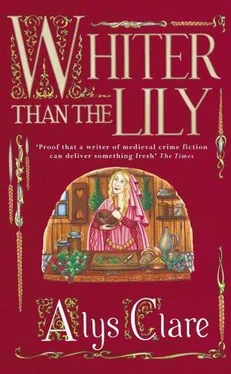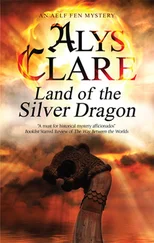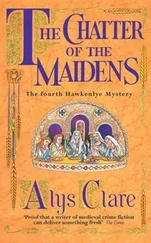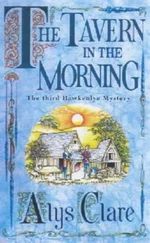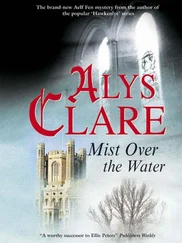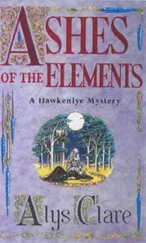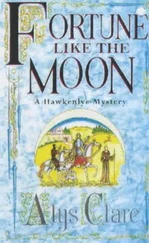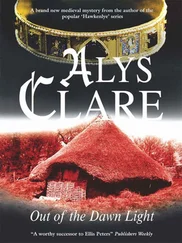Alys Clare - Whiter than the Lily
Здесь есть возможность читать онлайн «Alys Clare - Whiter than the Lily» весь текст электронной книги совершенно бесплатно (целиком полную версию без сокращений). В некоторых случаях можно слушать аудио, скачать через торрент в формате fb2 и присутствует краткое содержание. Год выпуска: 2011, ISBN: 2011, Издательство: Hachette Littlehampton, Жанр: Исторический детектив, на английском языке. Описание произведения, (предисловие) а так же отзывы посетителей доступны на портале библиотеки ЛибКат.
- Название:Whiter than the Lily
- Автор:
- Издательство:Hachette Littlehampton
- Жанр:
- Год:2011
- ISBN:9781444726688
- Рейтинг книги:3 / 5. Голосов: 1
-
Избранное:Добавить в избранное
- Отзывы:
-
Ваша оценка:
- 60
- 1
- 2
- 3
- 4
- 5
Whiter than the Lily: краткое содержание, описание и аннотация
Предлагаем к чтению аннотацию, описание, краткое содержание или предисловие (зависит от того, что написал сам автор книги «Whiter than the Lily»). Если вы не нашли необходимую информацию о книге — напишите в комментариях, мы постараемся отыскать её.
Whiter than the Lily — читать онлайн бесплатно полную книгу (весь текст) целиком
Ниже представлен текст книги, разбитый по страницам. Система сохранения места последней прочитанной страницы, позволяет с удобством читать онлайн бесплатно книгу «Whiter than the Lily», без необходимости каждый раз заново искать на чём Вы остановились. Поставьте закладку, и сможете в любой момент перейти на страницу, на которой закончили чтение.
Интервал:
Закладка:
In the early morning of the next day, there was a freshness in the air that encouraged him to get up and be on his way. He ate a hunk of bread standing up; then, having checked one final time that his fire was properly dead, covered the cooling ashes with the hearthstones. He packed up his blankets and his cooking pot, tacked up Horace, tied the smelly cloth in its sack once more behind the saddle — only his reluctance to hurt Sister Martha’s feelings prevented him from chucking the wretched thing away — then mounted and rode off along the cliff top.
He followed the track for some time. In places it turned away from the edge of the cliff and appeared to join a wider, better-built road, cobbled, regular in width and bordered with stones. He would have preferred to follow this more sophisticated road, if only because it was not nearly as dusty as the narrow track, but he feared that if he strayed too far from the cliff top he would miss his destination.
After a time the track wound its way to the north around a low hill. Then, on the far side of the hill, the track branched, one fork heading off eastwards, the other descending a steep slope that led southwards towards the marsh.
Logic said to proceed on the cliff-top track. But instinct said otherwise; clucking to Horace, Josse turned the horse’s head to the right and began carefully to descend the hill.
Halfway down a large bird got up out of the undergrowth and flapped noisily over Josse’s head and away over the marsh. Unreasonably startled, Josse told himself not to be stupid; it was only a heron.
But Horace was alarmed too. Most unusually, the big horse was sweating and clearly uneasy.
‘Come on, old friend,’ Josse said encouragingly. ‘We’ve seen worse things, you and I, and lived to tell the tale!’
But on the steep, shadowed track, bordered as it was by encroaching trees and tangled undergrowth, there was no air and Josse’s words died away echoless.
It was almost as though some invisible, malign presence were aware of him. Aware and unwelcoming.
Desperate suddenly to get out into the open, Josse ignored the steepness of the gradient and kicked Horace into a trot. The horse, eagerly responding as if he too could not wait to see sky and open land again, managed to keep his feet and soon they were stepping out of the dimness and into the hot sunlight.
There was another track down there, Josse saw, that seemed to lead off to the east along the base of the cliff. A narrow stream ran alongside it. Peering that way, Josse could at first see no sign either of any ruined building on the side of the slope or of any dwelling down on the marshland. He kicked Horace and they set off along the track, keeping the stream on their right. After a short while a clutch of low, ruined buildings came into view on the opposite bank and, with a word of encouragement, Josse put the horse at the slight obstacle of the stream and they jumped across.
The ruins, such as they were, were deserted and appeared to have been so for some time. Little remained except some stunted walls and a sole lonely doorway, with no door on the hinges and no inviting view of some cosy room beyond. Nothing could be seen through its gaping space, in fact, but more marshland.
Josse sat for a moment, thinking. He remembered being told that, of old, men extracted salt from the creeks that ran from the sea inland into the marsh. Perhaps that was what had gone on here; with a little imagination he could picture the narrow stream as a wide creek, regularly filled by the tides so that the precious salt could be taken from the ever-generous sea. Only the land had encroached, the creek had dried up to this meagre trickle and, with no salt to extract, the men had gone away.
Suddenly depressed, swiftly Josse turned Horace and set off at a canter back the way they had come.
Passing the place where they had emerged from the slope leading down the hillside, he rode on westwards along the track beneath the cliffs. Then, once more drawing rein, he stopped to look ahead.
But it was difficult to focus on the marshland, for it seemed to shimmer in the light and hide itself beneath wavering mirages, as if it shied from close scrutiny. Holding Horace quite still, Josse stared out across the flat expanse before him. There were few trees — only the occasional clump of stunted willows that looked as if they were on the point of giving up the struggle against winter winds and brackish water — and little else to break up the monotony of the creek-crossed salt flats. Perhaps it was that very monotony that made the eyes play tricks, for one moment he would think he saw something — a low dwelling, the gentle rise of smoke from someone’s morning cooking fire — but, when he looked more closely, it would be gone.
He tried not to think about how he was ever going to find Deadfall. It did not do to be discouraged before he had properly started.
He turned back to the cliff and stared along the slope that ran away westwards. The streamlet seemed to come from that direction and so, with no other plan suggesting itself, he set off to follow it.
He had not gone far when, through the trees, he caught sight of stonework. Dismounting, he pushed his way through the branches of alder and willow and peered out at the hillside.
Scattered across it, as if some vast building erected in antiquity had finally given up and allowed itself to be borne away down the slope, were huge clumps of masonry. They were of pale stone, into which had been inserted courses of reddish tiles.
And, understanding the aptness of the name now that he had seen the place, he said out loud, ‘Deadfall.’
If he had found the right place — and he was sure that he had — then the house he was searching for must lie under the cliff, behind him to the south. Mounting again, he crossed the track and set out across the marsh.
He searched for most of the day. He found nothing.
The light began to fail early and at first he did not understand why, unless his fruitless and increasingly frustrating search had gone on for longer than he realised.
Then he glanced up at the sky.
His intention had simply been to see how low the sun was. But he could not see the sun, for it was covered by a huge bank of thick, dark, menacing cloud that had steadily been creeping across the sky from the south-west.
The temperature had dropped alarmingly; Josse realised that both he and his horse were shivering.
Biting down the fear that, out of nowhere and for no apparent cause, began coursing through him, he tried to think. Be practical, he told himself sternly. If there is a storm coming — and only someone with a totally unrealistically optimistic outlook could believe there was not — then we must have shelter.
He thought of the massive ruins he had seen earlier up on the hillside. He thought some more, but could think of nothing better. So, kicking Horace into a canter, he headed back towards the cliff as fast as the marshy, uneven ground would allow.
They took the stream in a soaring leap and then had to slow down to pass under the trees that lined the track. Finding a way through the undergrowth and out on to the hillside took precious time — Josse was aware of the approaching storm now almost as of something terrifying and alive that was steadily stalking him — but finally he discovered a place where the brambles grew less thickly, and bodily he and Horace forced an opening through them. He felt his skin tear as a sharp thorn dug into the back of his hand and, sucking at it, tasted his own blood.
The slope was steeper than it had appeared from below and soon Josse dismounted, leading Horace, trying to run over the uneven grass, the breath rasping in his throat and chest as he urged the horse on towards the ruins.
There was not much time. Now the black cloud covered almost all of the sky.
Читать дальшеИнтервал:
Закладка:
Похожие книги на «Whiter than the Lily»
Представляем Вашему вниманию похожие книги на «Whiter than the Lily» списком для выбора. Мы отобрали схожую по названию и смыслу литературу в надежде предоставить читателям больше вариантов отыскать новые, интересные, ещё непрочитанные произведения.
Обсуждение, отзывы о книге «Whiter than the Lily» и просто собственные мнения читателей. Оставьте ваши комментарии, напишите, что Вы думаете о произведении, его смысле или главных героях. Укажите что конкретно понравилось, а что нет, и почему Вы так считаете.
